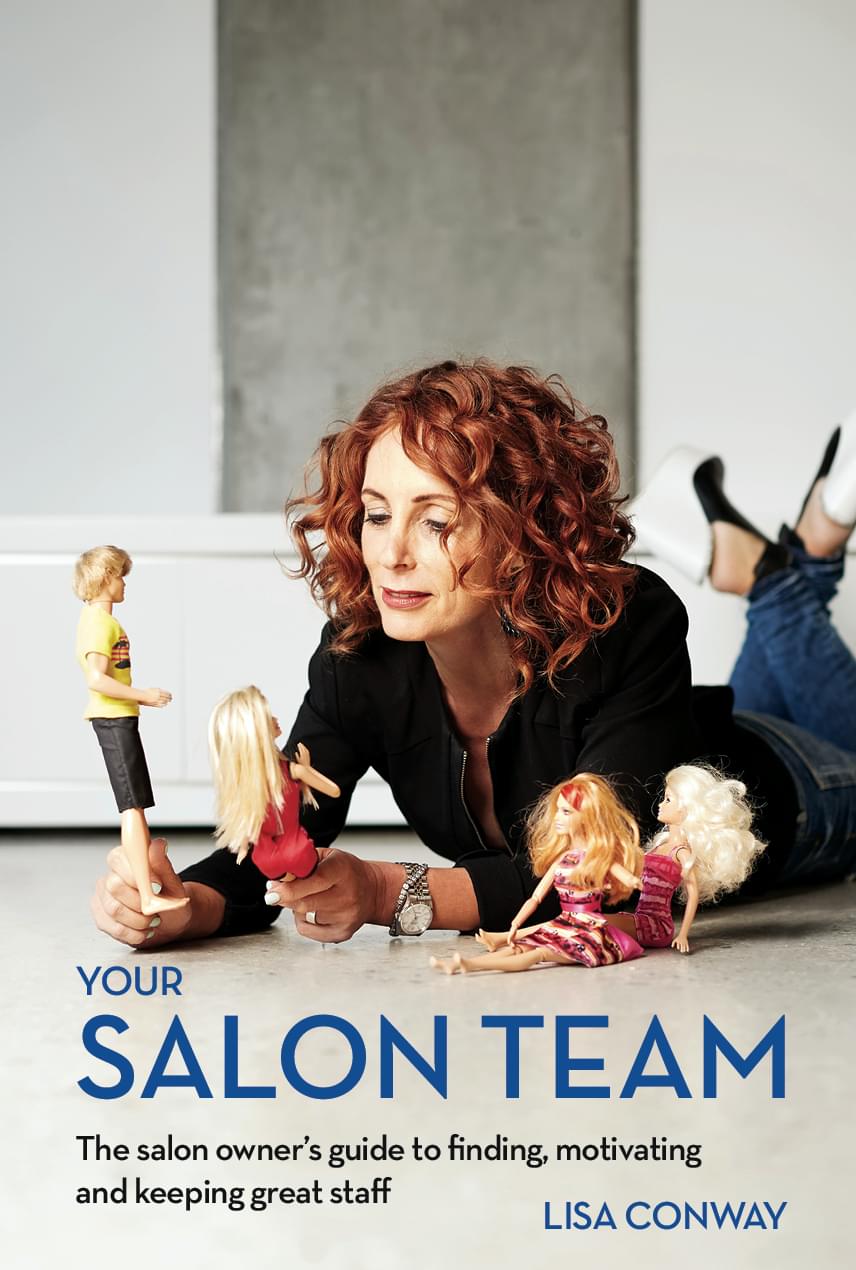
Business Smarts for Salon Owners
Teaching you the skills you are expected to know but were never taught...
Business Smarts for Salon Owners
Teaching you the skills you are expected to know but were never taught...
Hair and Beauty Business Coaching and Mentoring. The ZING team are Hair and Beauty professionals (just like you). We learnt the hard way, about what works and what doesn’t work in our industry. Now, we want to share what we know with you, so you can switch your salon from surviving to absolutely thriving!

Every Salon, Spa or Clinic Owner Deserves...

Freedom of Time
Proven systems to make the most of everyday!
We help you shift from never having enough hours in your day to running a systemized business that works even when you're not there.
Everyone gets the same 24 hours each day. If you're saying you don't have enough hours in the day, we’re hearing that you're not organized, you're all over the shop or you're spending time doing everything for everyone else.
We also give you a structure for your time and proven systems to make sure you make the most of every day. We'll show you how to share the load, shape-up your business smarts and get the best return on your most precious resource... TIME.

Incredible Team
Your team is the core of your salon. It comes from two things, truth and training.

Abundance of Money
Isn't it time you got paid what you deserve?
You CAN'T work any harder, but let me show you how to work smarter and make more money so you have more choices in your life.
Oprah said it beautifully: "If you undervalue what you do, the world undervalues who you are." Most of us went into a salon not because we wanted to make a million, but because we wanted to make a difference.
Who said you couldn't have the MONEY and the satisfaction?
I have big plans for you. Let me show you the MONEY, unlock the missing dollars in your current business model and teach you to create an amazing salon experience for your clients while generating more MONEY to create an amazing life for yourself.

Lisa Conway
Lisa Conway is a Salon Professional Extraordinaire and Author of tell-all book, The Naked Salon – An Essential Guide to Time, Team and Money for Salon Owners. With genuine passion and boundless energy, she heads up The ZING Project, a business dedicated to teaching Salon Owners how to step-up and transform their businesses.
Lisa knows the core business skills that most hair and beauty professionals were never taught, which can make all the difference. She learned the hard way – through trial and error, she worked out how to make things work. And she’s on a mission to share her know-how with you.

Lisa Conway
Lisa Conway is a Salon Professional Extraordinaire and Author of tell-all book, The Naked Salon – An Essential Guide to Time, Team and Money for Salon Owners. With genuine passion and boundless energy, she heads up The ZING Project, a business dedicated to teaching Salon Owners how to step-up and transform their businesses.
Lisa knows the core business skills that most hair and beauty professionals were never taught, which can make all the difference. She learned the hard way – through trial and error, she worked out how to make things work. And she’s on a mission to share her know-how with you.
Business Smarts For Salon Owners
We show salon owners where the profit is hiding in their business, through a better understanding of TIME, TEAM and MONEY. We teach salon owners what they are expected to know but were never taught, so they know what to do, when to do it, but most importantly WHY!
We find time, cut out waste and increase your profits!

About ZING
What would it mean to you to double the profit in your hair or beauty business… and halve your stress levels?
Or simply, to run a highly operational salon?

Tell us about your Salon, your challenges, your team... and we'll tell you how we can help you. It's all about what YOU need. We're friendly, like-minded and we love what we do. Strongly passionate some would say... We want that for you, too!
My team are Hair and Beauty professionals (like you). We learnt the hard way what works and what doesn't work in this industry. Now, we want to share what we know with you, so you can switch your Salon from surviving to thriving.
Wherever you are in the world, whatever the profile of salon, whatever the size of your budget - if you're after support and advice, we can help you in some way. We teach you what you're expected to know but were never taught.
I created The ZING Project to close the gap between salon owners and the amazing business life they can create. I draw on more than 30 years in the industry, sharing insider know-how and business smarts to help you deliver fabulous client experiences, lead a kick-arse team and make the money you deserve.
Business Smarts For Salon Owners
At ZING we show salon owners where the profit is hiding in their business, through a better understanding of TIME, TEAM and MONEY. We teach salon owners what they are expected to know but were never taught, so they know what to do, when to do it, but most importantly WHY!
I find time, cut out waste and increase your profits!


About ZING
What would it mean to you to double the profit in your hair or beauty business… and halve your stress levels? Or simply, to run a highly operational salon?
Lisa's Programs & Events
It doesn't matter where you are in your journey, I have a program designed to help get you to the next level - FAST!


My 5-star, 6-night, women only retreat in beautiful Canggu, Bali.
Is it life coaching, YES! Is it business coaching, YES!
Is it life coaching, YES! Is it business coaching, YES!
Jay & Marie's Programs & Events
Jay


My 5-star, 6-night, women only retreat in beautiful Canggu, Bali.
Is it life coaching, YES! Is it business coaching, YES!
Is it life coaching, YES! Is it business coaching, YES!
Lisa's Bestselling books
Click on the button below to checkout the books, it all started with THE NAKED SALON. Available in Paperback, Audio and Book Bundle!



Lisa's Bestselling books
Click on the button below to checkout the books, it all started with THE NAKED SALON. Available in Paperback, Audio and Bundle!



Want my FREE Salon Success Playbook?
Identify the biggest bottlenecks in your business, so you can build out a strategic game plan that will actually take your salon to the next level.
My Salon Success Playbook is a fantastic tool you can use to engage in self-reflection about your (and the team's) performance. This can help you identify problems quickly and give you complete clarity and a holistic view of what is really holding you back from the success you deserve.
This playbook is your ultimate “go to” for putting everything out on the table. It will show you where to focus your energy, save you time and help you take your team to the next level.

About Us
The ZING Project and ZING Coach are Australian registered trading names of Zeehan Enterprises Pty Ltd. The Salon MENTORS is a registered name of The Salon MENTORS LLC
Registered Offices:
14 Church Street PARKVILLE VIC 3052
PO Box 297 Surfers Paradise QLD 4217
Email:
Frequently asked questions about coaching for your salon business
How will mentoring help me, when I don’t even know what I need?
- Mentoring will give you clarity and a vision for your business. Part of the coaching process is to find out what it is that you want for your salon. Without this, mentoring just doesn’t work.
What if I start, and mentoring doesn’t work for me?
- Mentoring is not for everyone, and if we feel that it is not the right time for you, we will say so, that way we don’t waste each other's time.
I have always done things a certain way, and I’m afraid to change...
- Some things don’t need to change. However unless we make some changes to what we do day to day, the outcomes will always be the same.
For how long does a Salon need to be coached?
- That depends on how far you want to grow. Some salon owners want to sell their salon, and others would like more than one salon. It all depends on where you are now, and where you want to be.
My staff might panic & think they are in trouble. How do you work with them?
- Depending on your salon location, We will meet with your team as well. We feel very strongly about the team. Without a good team, you don’t have a business. The aim is to engage and educate both the salon owner and the team in building a better environment to work in, as well as getting a balance of profit and time away from the salon, without you having to think, “hmm..I wonder what my staff are doing....”
Do you teach systems?
- Absolutely! Without systems, salons are chaos! We give you the support you need to develop the best systems and practices for your Salon.
Have the things you do with Salons been tested already?
- Yes. Over & over again. We have owned salons ourselves as well as coached many salon owners. There’s nothing we haven’t seen or heard in a salon that has frightened us for long!
How many Salons do you look after at once?
- We limit our coaching clients to a number that allows us the flexibility to be there for you when you need us.
What does my Coaching Package include?
- Fortnightly or Monthly face to face contact, or phone coaching every fortnight, for up to 2 hours, depending on the type of Coaching Package you choose.
-
Additional Phone Calls and E-Mail contact when needed.
-
Templates for Marketing
-
Constructive critique of your work and a guide for the best way to do things.
-
Team Meetings when needed
-
Our recommendations/introductions to best performers in the industry EG: Colour companies/Computer Systems etc.
I am located some distance from the ZING office base.. How will my Coach work with me when I am so far away?
- We have ZING coaches based all over Australia. Part of our service is to come to you at your salon, but even if you are interstate, phone and Skype coaching is always an option. You would be amazed at the results your coach can make happen for you, even at a distance.
So what do I have to lose?
How do I sign up to work with Lisa?
- Give the ZING Office a call on 0457 607 888 or email us at: [email protected]
© Copyright 2024 - ZING Digital




